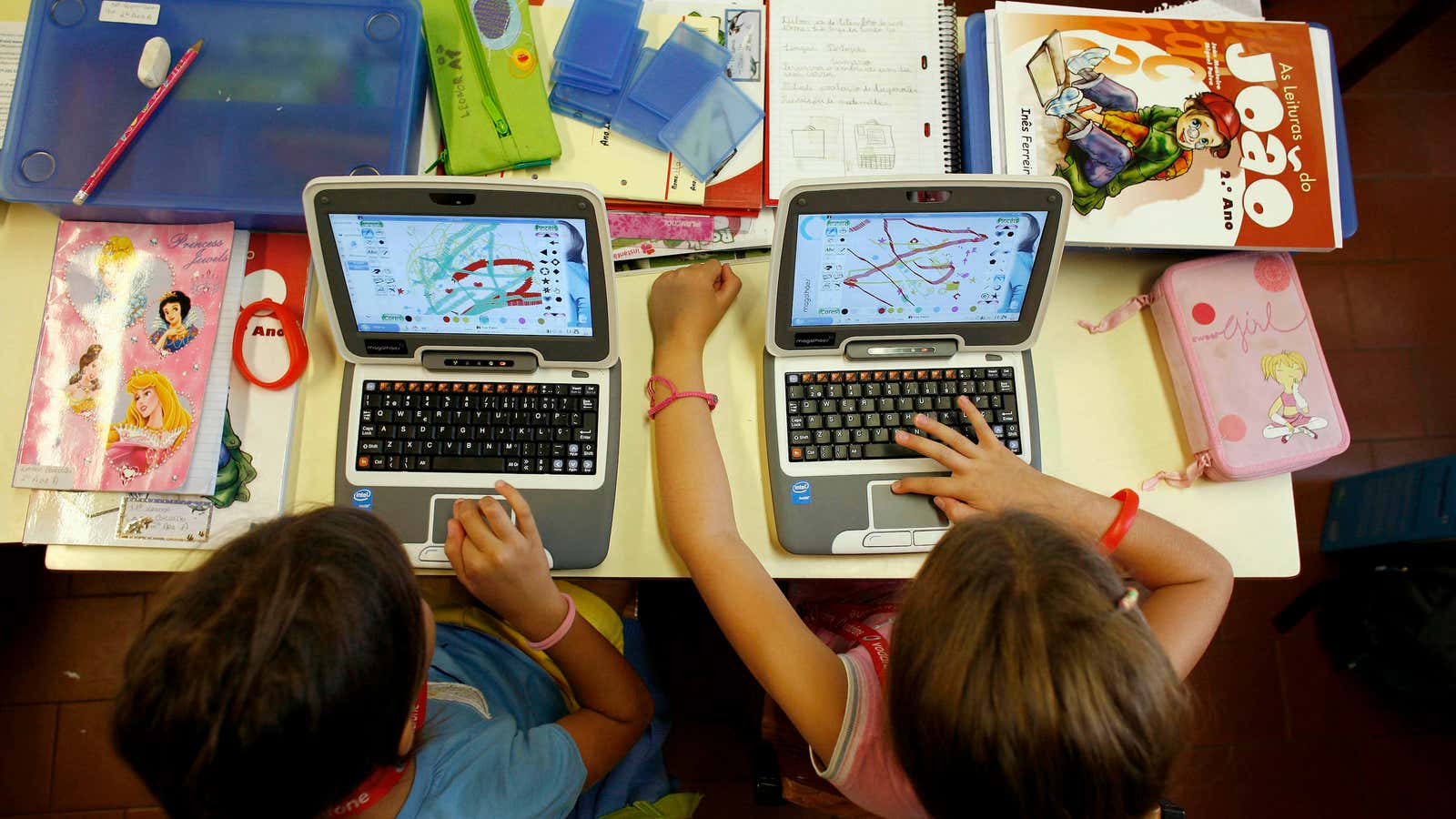In an era when upward economic mobility seems increasingly hard to achieve, the idea of instituting a universal basic income (UBI) is all the rage in policy circles around the globe. Of course, there are reasonable concerns about the practicalities: guaranteeing the income of every man, woman, and child would be expensive, and critics worry that such a program could discourage people from seeking work. So rather than dive right into a full UBI, it’s becoming increasingly clear that the best place to start is to provide a basic income for kids.
It’s a simple idea: to help families mitigate the costs of raising children, the government should send each household with kids a monthly check. Unlike a full UBI, which is just now being piloted in a handful of cities, a basic income for children (often called a “child allowance” or “child benefit”) has already been successfully implemented in many other developed nations. Countries like Canada, the Netherlands, and Sweden all have one. Great Britain used cash grants to families to help cut its child poverty rate by half in just 10 years.
There are a lot of good reasons for the United States to import this tried and true policy. On a basic moral level, a child’s well-being should not be dependent on her parents’ ability to earn market income. But that’s exactly what we have allowed in the United States, and 19% of all children suffer in poverty because of it. Poor children are poor through no fault of their own, having simply had the misfortune of being born into low-income households. We shouldn’t accept this fate.
Indeed, rampant child poverty makes equality of opportunity nearly impossible in the US. Poverty is a massive handicap for kids, impairing their ability to learn in school and literally hurting their brain development. The stress induced by poverty holds kids back for life.
Conversely, children that get income boosts do better in school and grow up to earn more money. Studies of low-income families receiving income windfalls—from the Earned Income Tax Credit to tribal payments from casino revenues—consistently find both academic and economic benefits for young children. Making sure that children are raised on at least a basic income gives them a fair shot to seize opportunity and achieve in school and their future careers.
A children’s basic income is also fair for parents. Having a child is a huge financial burden, costing parents nearly a quarter million dollars on average. Yet parents typically have children relatively early in their working careers, when their incomes are at their lowest. This makes having and raising children a significant risk of poverty. With more mouths to feed, family income just doesn’t stretch as far.
Our public policy typically tries to support and encourage childrearing, not implicitly penalize parents with the prospect of financial ruin. Yet many millennials are finding themselves unable to afford to have children, a trend with bad long-term impacts for the size of the American workforce, the prospects for the US economy, and the stability of programs like Social Security. A children’s basic income would provide the support parents need to securely raise children.
Moreover, a children’s basic income would finally treat raising children like real, valued work. In 2012, a Democratic surrogate wrongly bashed Ann Romney for foregoing private employment to stay home with her children. The Romney campaign rightly fought back by insisting that raising children is real work. Most of us would undoubtedly agree, and compensating parents for raising children would put our money where our mouths are.
Such a program would also be great for the economy. Because parents have more expenses, they are more likely to spend new money they receive. More spending generates more growth, boosting the economy as a whole. That’s why, when the economy began to sputter in 2008, President Bush and Democrats in Congress responded with an initial stimulus plan that in part gave an extra $300 per child to parents as a sort of one-off child allowance. Parents could be counted on to spend the money. And when money is earmarked for children, parents do indeed tend to spend it on their children rather than on vices like alcohol or tobacco.
A children’s basic income is also a wise long-term investment in the future of the economy. By one estimate, child poverty costs the economy a whopping $672 billion each year. By ensuring that all children can capitalize on their potential, we’ll have more productive workers in the future and ensure that talent does not go squandered by the bad luck of being born poor.
American politicians are starting to pay attention to these issues, but many of their solutions fall short. On the campaign trail, Donald Trump has proposed a new child-care tax deduction that would, predictably, only help rich parents. Hillary Clinton’s child-care plan is better, but would only help parents who put their kids in commercial childcare, and not those who raise children at home. One of the strongest options currently in play comes from Rep. Rosa DeLauro, who has proposed a new, refundable young child tax credit that would go far to help the youngest children who are most ill affected by poverty.
But ultimately, something bolder is needed. A basic income for children would alleviate child poverty and give parents the support and flexibility they need. Those who want a UBI should focus their efforts on helping the people who need it most.
